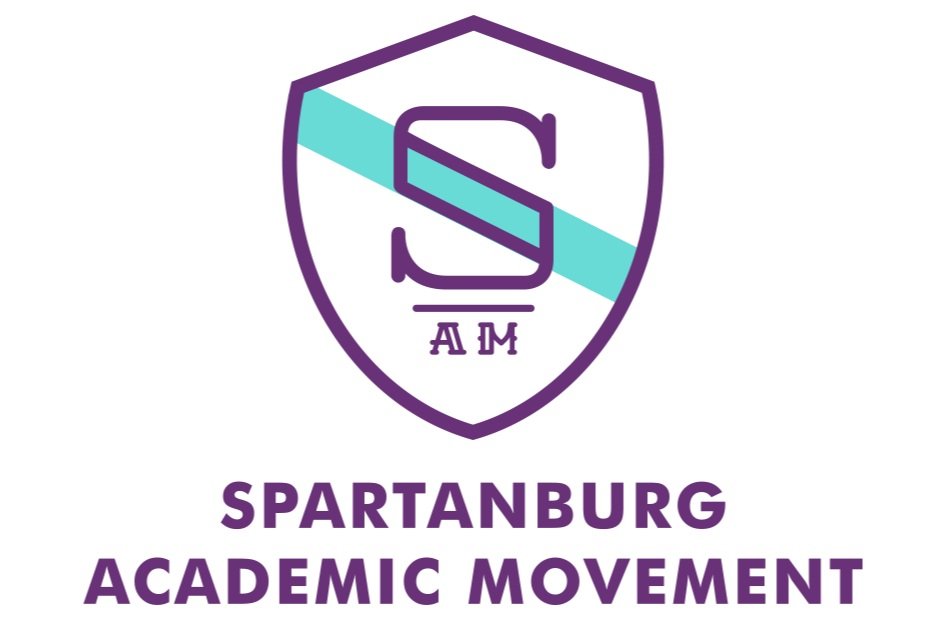
HISTORY
For generations, Spartanburg County was a textile-driven economy. Academic achievement was not a “cultural value.” Today, the demands of the economy have escalated radically, but commitment to academic achievement has not kept pace.
The timeline and effort for increasing educational value is detailed in "Fulfilling the Promise."
2008
-
OneSpartanburg, Inc. (formerly known as the Spartanburg Area Chamber of Commerce) assembled the Task Force on College Degree Attainment charged to examine the connection between economic development and educational achievement. At that time, 19.2% of adults 25 and older held bachelor’s degree, with the state average at 22.7% and the nation at 27%. Regions with dynamic economies boasted rates above 40%. Spartanburg County was not in the game.
Leading the list of Task Force recommendations was “The 40/30 Challenge” - doubling the number of adult bachelor’s degree holders in a generation, to 40% by 2030.
2010
-
The Spartanburg County Foundation established and funded the “College Hub,” a non-profit charged to address this single benchmark by encouraging increasing numbers of young people to go to college and adults to return to complete degrees.
2012
-
Two developments motivated a turn-around in the efforts of The College Hub.
First was the College Hub’s merger with the Children’s Services Alliance. The Alliance served as a network engaging pre-K providers and agencies, and developed the Toolkit for Kindergarten Readiness.
The combined boards recognized that each had been working at extreme ends of the same education continuum. They also recognized that advancing academic achievement across the entire spectrum was required if success were to be realized.
A second development was former Executive Director John Stockwell’s discovery of the StriveTogether Network. This collective-impact model for community-wide change was developed and launched across the school districts of Cincinnati and Northern Kentucky.
With this discovery, everything changed for the College Hub: the challenge, the model, the goals, the strategies, the metrics, the objectives, the funding, the staffing…even the name.
2013-2014
-
No longer just “college” or “kindergarten readiness.” No longer isolated points on the continuum. We were no longer a 'hub', but a movement.
We became The Spartanburg Academic Movement, adopting a new brand and messaging strategy that better aligned with our new efforts.
-
SAM achieves the “Proof Point” designation among nationwide members of the StriveTogether network. This significant milestone tracks organizational strength and impact along the StriveTogether Theory of Action and signals a minimum of four of seven cradle-to-career outcome areas maintaining or improving for at least three years. StriveTogether will reassess this achievement in 2020 as SAM continues its work building toward recognition as a Systems Transformation organization:
“Focus on spreading and scaling interventions and bright spots cross sectors and championing work that improves economic mobility by: shifting the community narrative around accountability for improvement, deepening action toward equity and results at scale, creating data infrastructure that works across sectors, and intentionally and authentically shifting decision-making to families, youth and community. “
2018-2022
2023
-
In late 2023, on behalf of 30 business, university, and nonprofit partners, the Spartanburg Academic Movement announced the launch of Movement 2030, a groundbreaking place-based partnership to create the conditions for Spartanburg’s children and families to succeed in life, no matter where they are born and raised.
Movement 2030 has raised $100 million from local, regional, and national funders, which is expected to unlock another $120 million in public and private capital over the plan’s seven-year implementation period.
Despite benefiting from over $5 billion in capital investments by employers in the last decade, Spartanburg ranks in the bottom 10% of counties nationwide for economic mobility. Movement 2030 has been thoughtfully designed to address this challenge.
The community-led initiative, which will be implemented by partners throughout Spartanburg, features two primary tracks of work, both of which are critical drivers of upward mobility: it will increase the percentage of Spartanburg’s children who are prepared for success in school when they start kindergarten–from the current level of 49% to 65%, in line with high-achieving, similar-sized communities; and it will increase to 70% the percentage of Spartanburg’s high-school graduates who enroll in post-secondary programs, setting them on a path to long-term economic prosperity. Movement 2030 is also investing in two place-based initiatives–the Northside and Highland neighborhoods–to bring their education outcomes in line with county-wide averages.
By supporting and aligning existing, local efforts around school readiness, post-secondary attainment, and place-based programs, Movement 2030 expects to reach 60,000 people over the next seven years, including 7,000 young people
2022
-
SAM has launched a Postsecondary Education Attainment Steering Committee to guide the development of an action plan to improve college enrollment and completion. SAM and its partners will advance Spartanburg’s economic vitality and overall quality of life by boosting college attainment rates, which influences higher incomes and better health, and for the community, influences a more active citizenry, increased tax revenues and decreased reliance on public assistance.






